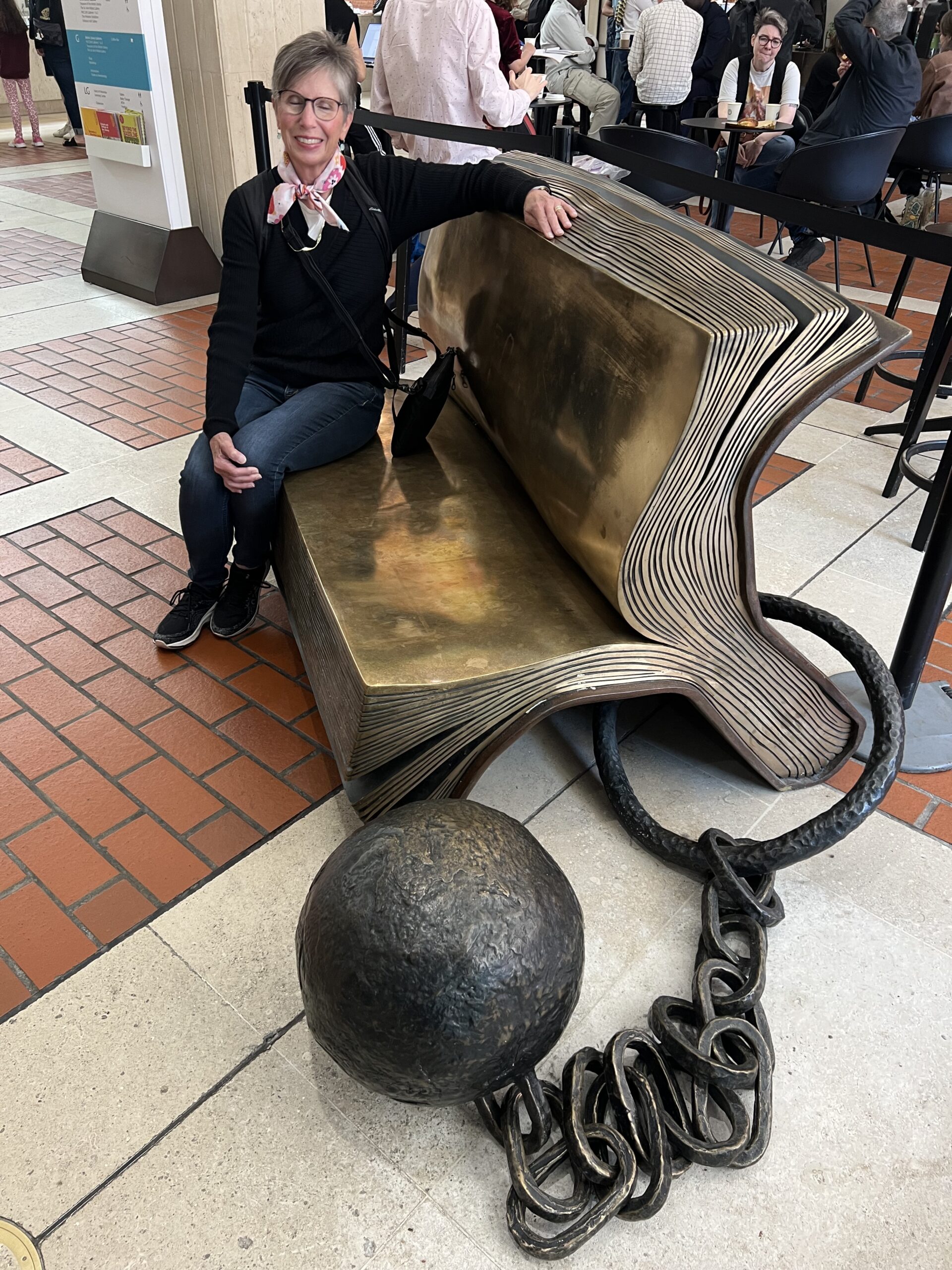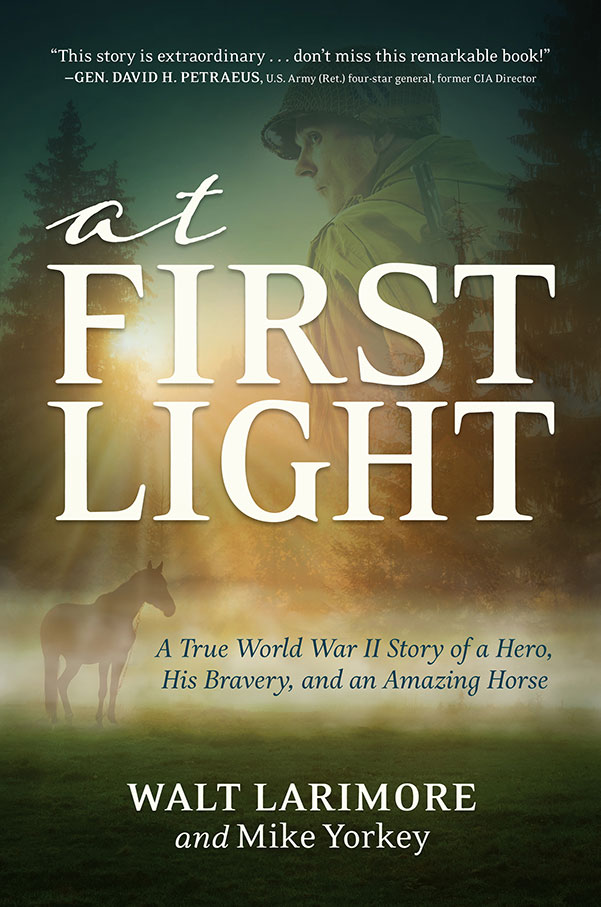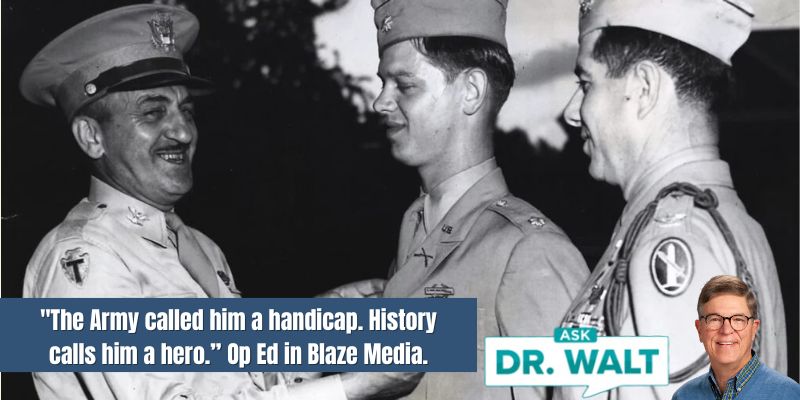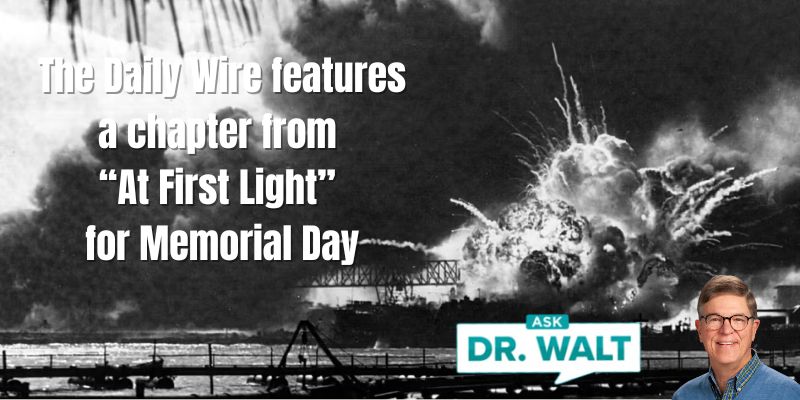
Day 5 — Our Great Britain and Ireland Adventure
May 20, 2024
May 21, 1944 — The horrific number of casualties on Anzio
May 21, 2024Before the massive breakout from the Anzio beachhead was to commence, Phil wrote his last letter home from the “bitch head.”

21 May 44
Lt. Philip B. Larimore[1], Hq Co 3rd BN. 30th Inf A.P.O. #3
c/o Postmaster New York N.Y.
Anzio Beach, Italy
Dearest Mother and Dad;
Back again. Yesterday your letter with the newspaper clipping of the plane wreck and the letter with the stamps came in. You haven’t been writing as many letter as you did when I first came over. At first you were writing a heck of a lot more letters than Marilyn was. But now she has you beat 2 to 1.
But I get at least two or three letters at each mail call which does make me quite happy. Bill writes at least one letter per week and so does Jane. So all together the whole bunch keeps me quite happy.
I haven’t gotten the box yet but I am still sweating it out and I know it will get here some time soon. At least I hope so. I do want that canned meat very bad, even tho we have been eating swell here. I hope you also put a bottle of olives in the package. Don’t every worry about cigs. or V-mails because we get all that we want.
Oh yes while I am thinking about it. You air mail’s got here much quicker that any other kind and I would rather get 1 good air mail than get 7 V-mail letter a week.
Some people around here tell me that their folk at home say that the post office are not going to let any thing but V-mail letters come overseas.
Well Mom most of the boys here hate V-mail and use them only because they can’t get any thing else, not because they like to write on them. A person hardly gets started when the page is ended and you have to stop. Not that there is very much to say in a letter. But I think you get what I mean any way.
Did you give Marilyn the ring? I wish now I had waited and let her pick out the one she liked rather than gone ahead and bought one like I did. But may be she will like it anyway. At least I hope so.
Mom one reason I don’t write any more mail than I do is because I have to damn many letters to read. You see each platoon leader has to censor all the mail of the men in his platoon. My boys write between 30 and 60 letters a day and I have to censor the days mail before I can go to bed. Usualy(sic) it is way late when I stop working and after I get through with the mail I am to(sic) darn tired to do any letter writing. So you will just have to wait, because my writing comes second to their mail. I’m sorry but that is the way it is. And there is nothing I can do about it.
Here lately my platoon and I have been building roads. It is a lot of fun seeing how good a road can be built and how long the road will hold up. You see where we are now is deep sand, and we have to haul in dirt and cut the sand away then put the dirt in. Then put a good cap on top, then a road bed of crushed stone, then the road surface, which is usualy(sic) smaler(sic) crushed stone. So there is a lot of work to building, a military road, because so many, very heavy, machines and trucks have to go over it. But we can do the job any way.
I guess, in fact I know, by now you have seen Marilyn off and she is back in Des Moines. Did she show you the yellow jumper that I picked out for her while I was in Des Moines? I like it.
Well folk I must sign off for now, and write my other sweetheart. Take care of your selves and Mom, please don’t make Dad work to(sic) hard, because he must have some time to cut the lawn.
Write when you can. With all my love
Phil
PS — Put this money in my bank.
~~~~~
That night … the 30th Infantry and the 3rd
Infantry Division moved out of the beautiful Pine Grove for the last time, leaving behind the movies, the swims, the daily inspections, the intensive training, the band concerts, the baseball games, the award ceremonies, and the thousand and one activities and memories one has of a camp-rest center in the woods in spring.
As the troops moved out the beachhead’s smoke-fog machines were going full blast, and the streams of man-made mist merged into a low-hanging curtain screening the telltale dust of troop columns.
As the men moved up their morale was obviously high. The troops razzed bystanders and themselves. They sang or whistled. Never since Sicily had the men been better prepared physically or better conditioned mentally, to enter a difficult action.
Ahead lay the bloodiest single encounter in the history of the 30th Infantry Regiment, an encounter, however, that was to cover the Regiment’s already outstanding record with its greatest glory, and in which men were to die for their ideals and the honor of their Regiment.
Almost as if in prophecy the weather suddenly turned. The skies darkened. The temperature dropped a bit. Rain fell. Artillery commenced its nightly serenade.[2]
~~~~~
We realize that the vast operation is beginning. Night after night practically every cannon on the beachhead blasts the enemy positions. The Germans, at first, answer with furious barrages. But that is according to plan. The krauts are being tricked into expending their precious ammunition while we are still under cover.
During the terrible months immediately preceding, our command has studied every detail of the terrain over which we must pass. The enemy strongpoints are know; the mine fields, mapped; the gun position, plotted.
But time has also favored the Germans. It has enabled them to bring in reinforcements and to strengthen their defenses immeasurably. Obvious facts inform them that the assault is impending. Now with the tbales turned and their backs to the wall, they are prepared to fight like insane men. They must. If we shatter their lines and merge with the main body of our army pushing up from the south, Rome is doomed and their men in the area face annihilation.
Our final artileery barrage is so intense that it seems nothing could be left of the German lines. The grinning soldiers, listening to the thundering explosions, say, “Hitler, count you children.” Under the spinning shells we turn form the holes in which we have cowered for nearly four months and march toward the enemy. Directly overhead our 50-caliber machine guns lay a cover of bullets that crack in their passing like millions of bullwhips.
The Germans stagger; but fanatical and desperate, they recover. From the ruins of buildings, from field and forest, their deadly guns stutter.[3]
~~~~~
That evening, May 21, 3d Infantry Division moved out from the pine forest in full marching order.
It was a balmy evening. As if to justify, finally, the cognomen “Sunny Italy” after so many months of nothing by rain, wind, and snow, all the days had been warm latterly, even hot.
There were few clouds in the sky this evening and it was still full daylight when the leading Division elements were to be seen emerging from the protective concealment of the wooded bivouac.
The smoke-fog machines were going full blast, and the sickly-sweet streams of man-made mist merged into a low-hanging blanket which screened telltale rea areas of the beachhead.
The 15th Infantry, from its enacampment on the sandy wastes north of the pine forest, took its route through the forest, then struck out up the road for the front. The 7th and 30th Infantry Regiments followed.
In the green fields, which fronted the wooded area, a few sheep were grazing. Their Italian herders looked at the troop-filled roads with interest.
Along the main road which skirted the forest’s edge the 3rd Division Band under the leadership of Chief Warrant office Eugene Kusmiak had taken a vantage point. As the doughboys moved past, the band played “Dogface Soldier,” and a selection of marches.
As judged from the attitudes and remarks of the passing columns, never had the men been in finer fettle; never had moral been higher. They joked with bystanders, the bandsmen, the MPs, along the route and themselves. They sang or whistled. They held their head high.
Ahead but a short distance were the front lines which for four months had been braced and strengthened to a point almost unparalleled in the war of movement which prevailed from 1939-1945. There were thousands of antitank and antipersonnel mines laid by both sides. The enemy had sited his weapons in order to cover most favorably all routes of approach. The ground was flat, with few folds and a scarcity of ditches.
Added to all these disadvantages for the attacker was the fact that the southern front was rapidly moving north. Kesselring’s intelligence knew that the Anzio front was soon to move into action. If ever it was to be of value, now was the time. Surprise, therefore, could only be the limited surprise of exact date and exact place.
The steady marching men of the 3rd Infantry Division advanced toward one of the bloodiest single encounters fought by any Division in one day in World War II and what might well be classed as the greatest victory of its total combat career.
The sky darkened, and still the columns lined the roads. The artillery commenced its nightly serenade and the gun flashes merged their fire, like chain lightning.[4]
~~~~~
[1] Handwritten letter. Post marked “U.S. Army Postal Service. A.P.O. 3. 23(?) May 44.”
[2] Prohme, 167-168.
[3] Murphy. To Hell and Back. 150.
[4] Taggart, 149-150.
In case you haven’t read or listened to Dad’s book, you can learn more or order it here.
© Copyright WLL, INC. 2024.




